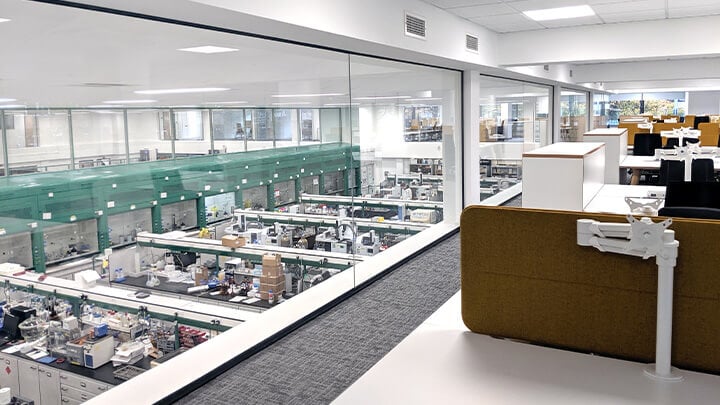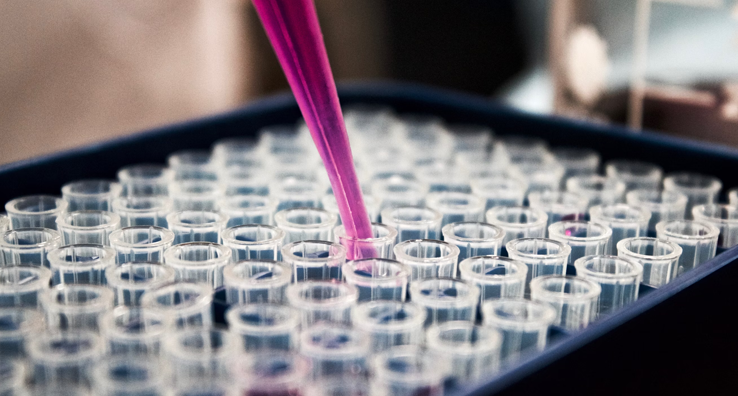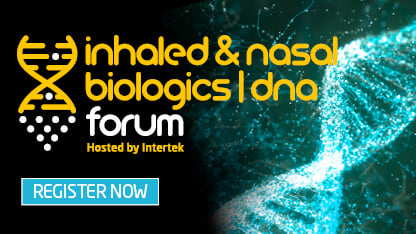Post-translational modification analysis supporting protein characterization purity and identity confirmation through mass spectrometry and chromatographic analysis
Protein post-translational modifications (PTMs) are common to biologic drug substances produced by bioprocessing. Also known as variants, these PTM forms exhibit some degree of structural heterogeneity and are produced by the post-translational addition of a functional group such as amide, phosphate, acetate, or methyl groups that become covalently bonded to the protein, proteolytics cleavage or degradation. PTMs can influence the structure, stability, function and how the protein interacts.
Determining post-translational modifications such as phosphorylation, oxidation of methionine, deamidation of asparagine and glutamine, variation in glycosylation, and proteolysis can be challenging. A complex array of detailed analytics is required in order to confirm protein identity, ensure a consistent manufacturing process and product quality. Furthermore, an incorrect modification or aggregation can lead to a potentially harmful immune response in the patient or lower product efficacy.
As a PTM analysis service provider, we apply our knowledge of anticipated PTM and potential PTMs based on your product’s specific structural characteristics to design strategic analytical programs that meet the requirements of regulatory expectations and industry guidance such as ICH Q6B.
Our laboratories are equipped with a broad technology base and our strengths in mass spectrometry (Orbitrap and QToF) analysis, in particular, allow the ability to provide high-resolution, accurate-mass (HRAM) data We also apply a range of chromatographic techniques to detect and identify a range of PTMs with comparison against using against an appropriate reference standard as necessary.
Our post-translational modification experts apply a strategic approach to PTM analysis in early development phases to help you to establish product acceptance criteria for ongoing requirements or to support your process validation activities. We employ PTM analysis as part of in-depth structural characterisation studies and as a vital component of comparability programs, stability studies or quality control testing.
Post-translational modifications analysis services include studies to identify or confirm:
• Deamidation
• Glycosylation
• Glycation
• Phosphorylation
• Acetylation
• Alkylation
• Sulfation
• Methylation
• Proteolysis
• Oxidation
• Mis-matched S-S bridges
• Truncation
• N/C-terminal modifications e.g. C-terminal amidation
Comprehensive protein characterisation from one source
With considerable expertise in the detailed analytics required to determine post-translational modifications we provide experienced service to get you the data you need relevant to your development stage but always with an eye on your needs for later-phase development and CMC requirements such as stability testing, regulatory submissions and ongoing analysis. Bringing quality and safety to life, we offer Total Quality Assurance expertise to help you to meet and exceed quality, safety and regulatory standards.
ARTICLES
New Approaches to Bioassay Design
Characterisation of Bispecifics
The Significance and Challenges of Inhaled and Nasal Biologics
Current Analytical Approaches to Biophysical Characterisation
Biosimilar Characterisation and Immunogenicity
WHITEPAPER DOWNLOADS
Liposome Physicochemical Property Analysis
Formulation of Biologics for Inhaled and Nasal Delivery
The Complexities of Antibody Drug Conjugate Characterization
BROCHURES
Download: Intertek Biopharmaceutical Services Brochure
Download: Intertek Pharmaceutical Services

Intertek Pharmaceutical Services Manchester
P.O. Box 42
Hexagon Tower
Blackley
Manchester, M9 8ZS
United Kingdom
For location use: M9 8GQ

Pharmaceutical News & Events
- PRESS RELEASE! Intertek partners with CrystecPharma to advance formulation science and accelerate development for dry powder inhalers
- NEW! Blog: Optimising Quality in Pharma Supply Chains
- Determination of Particles in Pharmaceuticals - Article
- Discover our Audit Live Tool for direct access to our scheduled audits
- Extractables/Leachables Lab Tour - Request access
- Medical Device Extractables & Leachables Studies
- Glycosylation Analytical Approaches for Antibody Therapeutics
- Rapid Determination of Low/Trace Level Benzene in Pharmaceutical Excipients and Finished Products

